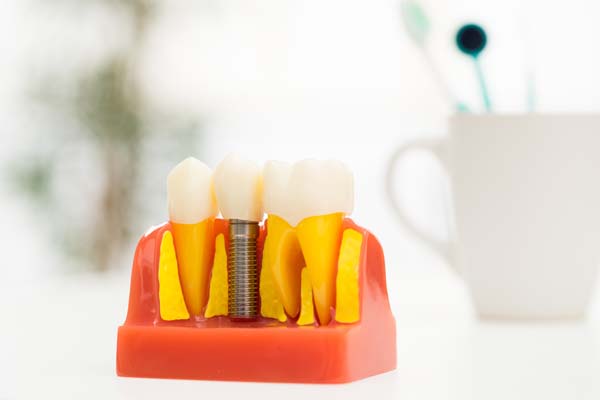4 Aftercare Tips for Implant Crowns

Implant crowns are a long-term solution to tooth loss that are easy to care for, but the process of receiving the new and beautiful replacement teeth is not always pleasant. To make the aftercare process following the placement procedure go as smoothly as possible, it is helpful to learn some aftercare tips from a dental professional.
4 Ways to care for your new implant crowns
Properly caring for implants after placement is essential to minimizing the risk of oral infection and keeping any discomfort that exists at a tolerable level until a full recovery is made. The following are four effective tips on how to care for your oral health after the placement of the implants.
1. Keep your mouth clean
Perhaps the most important care tip following implant crown placement is to keep the mouth as clean as possible. There is likely to be a fair amount of swelling and discomfort that exists, and there may even be some minor bleeding as well. Patients can keep the discomfort from becoming intolerable and prevent oral health complications such as an infection from developing by keeping the mouth clean through a good daily oral care routine. The routine should include brushing several times a day and using mouthwash as directed by the dental professional.
2. Eat a soft diet and drink water
One of the biggest changes to prepare for after implant placement is the patient’s diet. Many foods will be off-limits for the first few weeks, and it is important to keep chewing at a minimal level. To do so, stick primarily to soft foods such as oatmeal, yogurt, scrambled eggs and soup. It is also helpful to drink water throughout each day to wash away any excess bacteria that develop in the mouth.
3. Check for complications
It is also important to check for any signs of complications during the recovery process and to notify your dental professional if any issues develop to ensure the problem does not worsen or linger for longer than what is necessary. Signs to check for include excessive swelling, moderate to severe bleeding, an intolerable amount of pain and a dental implant that feels loose. While moderate discomfort and other symptoms are to be expected, anything severe might be a sign of a more serious issue such as an implant failure or an oral infection.
4. Make all scheduled dental visits
Your dental professional overseeing the implant crowns treatment process is likely to schedule follow-up visits to ensure the recovery process goes smoothly and that there are not any complications that the patient could not detect. It is essential to make all scheduled visits as some might be necessary for a full and speedy recovery. The longer an issue exists, the more serious it is likely to become, and dental professionals can quickly spot and fix any issues.
Find out more about implant crowns
Get in touch with our office today to learn more about implant crown treatment and to schedule an initial consultation visit. We help our patients through the entire process, including the aftercare process following implant placement.
Are you considering implant crowns in the Tarzana area? Get more information at https://www.woodlandhillsdentalspa.com or call us at (818) 514-8776.
Check out what others are saying about our dental services on Yelp: Implant Dentist in Tarzana, CA.
Related Posts
Patients considering dental implants who do not have enough bone density in their jawbone may need to undergo a bone extension procedure. This treatment, also known as ridge expansion, can help provide a stable foundation for the implant to anchor into, ensuring a successful long-term tooth replacement experience. Here is everything you need to know…
Considering Invisalign®? Read on to learn more about this teeth-straightening option. Many individuals who desire to straighten their teeth and fix their smile's spacing problems can now opt for Invisalign®. Traditional metal braces used to be the only choice for orthodontic treatment, but many people struggled with them due to their appearance. Invisalign uses a…
An implant crown can closely match the appearance of a natural tooth and can be essentially indistinguishable from adjacent natural teeth. This review discusses what an implant crown is and how a dentist can ensure that your implant crown looks as natural as possible.One of the main reasons that patients seek implant crown treatment is…
You may have heard a lot about sedation dentistry recently. It is appealing to many patients, especially those who have fears about dental treatments. Visiting the dentist may not be the most exciting event in your life, but these appointments are important. You should not avoid seeing the dentist because you are worried about the…
